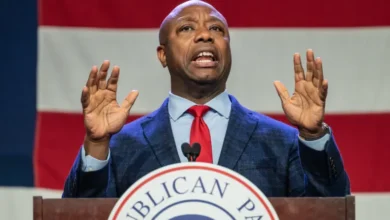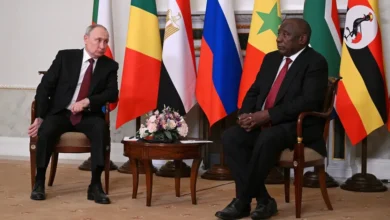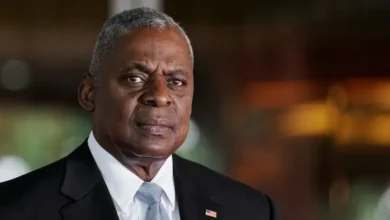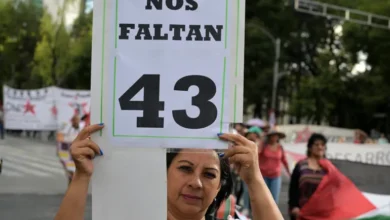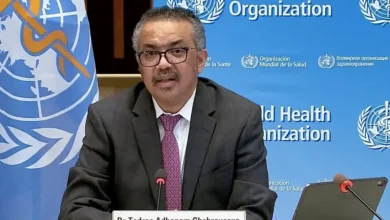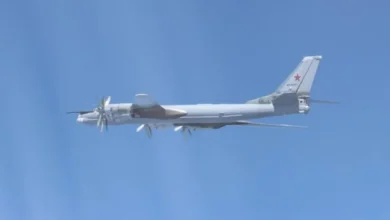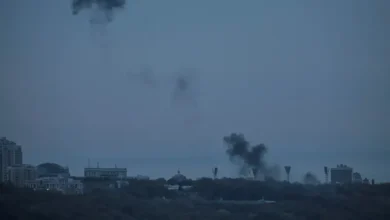Attack on Iran’s nuclear program more likely with Trump presidency
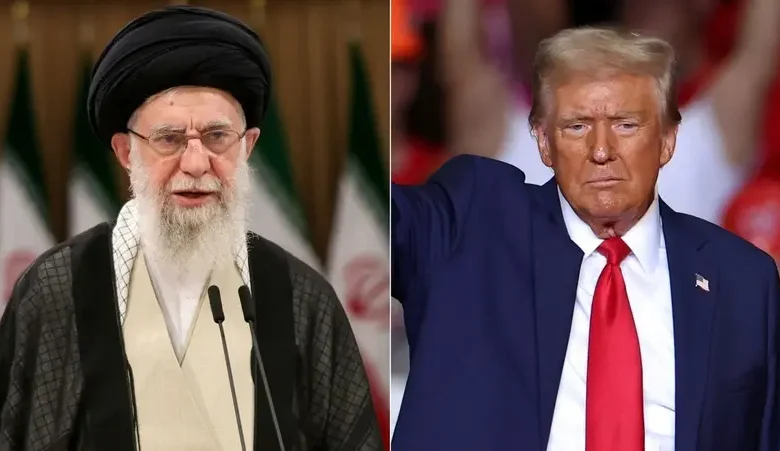
European diplomats are scrambling to see if there is a way to minimize the risk of a military attack on Iran’s nuclear program ahead of US President-elect Donald Trump’s return to the White House.
“We believe Israel has taken the decision to attack following the developments in the Middle East over the last several months,” one senior European diplomat, who, like others spoke to, said on condition of anonymity.
The diplomat did not say the attack was believed to be imminent but said several European countries have opened talks with the incoming Trump team to see if there is a chance for diplomacy or another way of preventing Iran from acquiring a nuclear weapon.
Britain, France and Germany held talks with Iran on Monday over Tehran’s nuclear program after secret meetings took place in November without any publicity.
In December, the three European capitals expressed “extreme concern” over Iran’s enrichment capacity. Paris said the uranium enrichment was nearing the “point of no return.”
Return of maximum-pressure campaign
One of the most pressing foreign policy challenges Trump will face is Iran and its nuclear program, with sources close to his incoming team said that his maximum-pressure campaign will be reinstated immediately. On Friday, the chairman of the Senate Foreign Relations Committee, Jim Risch, said the US would return to “President Trump’s maximum pressure campaign on Iran and safeguard American national security.”
Critics argue that Iran was able to access cash through illicit oil sales, leading to the pumping of millions of dollars in arms, funding and training to its proxies throughout the region after the 2015 nuclear deal signed under the Obama administration.
While Biden softened the US stance on Iran immediately after taking office and targeted Gulf allies, including Saudi Arabia and the United Arab Emirates, months of indirect talks proved to be futile.
The Biden administration says it did not lift sanctions on Iran but added more; however, reports show that the sanctions were not enforced as strictly as stipulated.
Analysts and diplomats believe the likelihood of direct US or Israeli military action against Iran’s nuclear facilities is now higher than ever, while prospects for a diplomatic solution remain slim.
Since his election win, Trump has refused to rule out military action on Iran when questioned about the issue. Reports indicate that he is considering strikes to prevent Iran from acquiring a nuclear bomb and that his team is preparing to reinstate the maximum-pressure campaign he pursued during his first term.
Farzen Sabet, a senior research associate at the Geneva Graduate Institute, told Al Arabiya English that a direct US attack on Iran under Trump “is more likely than any other period in the history of the Iranian nuclear issue.”
While Trump campaigned on ending wars, he may still back an Israeli strike by providing the necessary military support, with the US taking on an air defense role in the event of Iranian retaliation – similar to its response during Iran’s two attacks on Israel in 2024.
Current and former US officials believe that an Israeli attack capable of fully dismantling Iran’s nuclear program would not be possible without US support.
Since the Gaza war began in October 2023, Iran has suffered unprecedented losses. Israel has decimated Hamas, Lebanese Hezbollah has been severely weakened and lost its influential leader Hassan Nasrallah, and Syria’s Bashar al-Assad was forced to flee, breaking a crucial link in Iran’s so-called “axis of resistance.” Iran also lost several senior military commanders in the conflict and its main land bridge for weapons smuggling from Tehran to Beirut.
These setbacks may push Iran to accelerate its nuclear ambitions as a means of compensating for its newfound vulnerability. This increases pressure on Trump to consider military action, as he will not want to be the president under whom Iran acquires a nuclear weapon.
US intelligence assesses that Iran has enough fissile material to develop a nuclear weapon within weeks but believes the decision has not yet been made. It is also evaluated that developing an actual nuclear warhead would take several more months.
Israel, which views Iran’s nuclear program as an existential threat, is likely to increase pressure on the US to act to capitalize on Iran’s weakened position.
Little hope for diplomacy
Analysts are skeptical of a diplomatic solution, citing Trump’s personality, his administration’s hawkish stance on Iran, and Tehran’s unwillingness to make significant concessions.
“President Trump may lack the temperament for such protracted and complex negotiations, instead expecting quick results; his foreign policy and national security team are almost universally Iran hawks and would likely be obstacles to a deal; and while the Islamic Republic is weakened, Iranian [Supreme] Leader Ayatollah Ali Khamenei may not be willing to make concessions on some key issues that the US side wants,” Sabet said.
Trump’s demands may include a reversal of key aspects of Iran’s nuclear program, an end to its support for regional militias, and possibly even restrictions on its ballistic missile program – concessions that are likely to be unpalatable for Tehran.
Gregory Brew, senior analyst at Eurasia Group, believes that Trump is likely to pursue sanctions and other forms of economic coercion before considering a military strike.
“I don’t think Trump will rush into an attack immediately – his administration will use ‘maximum pressure’ measures, such as sanctions, to try and force concessions from Iran,” Brew said. Brew believes Iran’s weakened position presents an opportunity for the US to pursue a deal that extends beyond the nuclear issue.
“But the stakes will be high, as Iran is likely to resist strong pressure and will continue to threaten to change its nuclear doctrine if provoked. The US and Isreal, by the same token, will threaten military action if Iran does not submit to pressure,” he said.
Despite signals from Tehran that it is willing to engage in talks, some experts remain unconvinced that Iran will make any meaningful compromises. “Tehran may just be buying time,” according to Michael Horowitz, head of intelligence at Le Beck International, a security and risk management firm based in Bahrain.
Horowitz said that Trump may believe he can extract significant concessions from Iran due to its weakened state.
In an interview with NBC News published on Tuesday, Iranian President Masoud Pezeshkian denied ambitions to develop nuclear weapons and expressed hope that Trump would contribute to peace in the region and the world.
An Iran-based observer, speaking on condition of anonymity, argued that Tehran would compromise if it believed Washington was serious about launching strikes.
“I don’t think the Islamic Republic will allow things to escalate to the point of a US military attack,” the observer said. “They will make any concession Trump demands to avoid that scenario and stay in power.”
